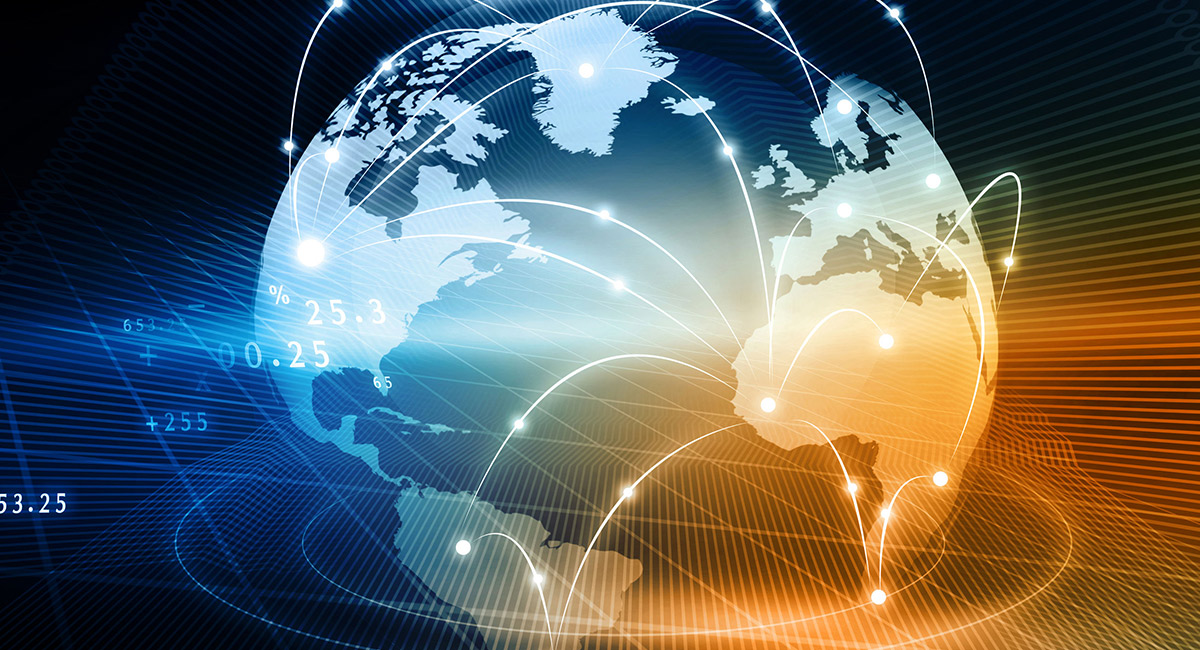President Putin’s decision to put Russian nuclear forces on alert on Sunday—dramatically escalating tensions over Russia’s invasion of Ukraine—was ostensibly in response to what he perceived as aggressive statements from Western countries as well as “unfriendly actions against our country in the economic sphere.”
It followed by a day the move by America and its allies to block the access of certain Russian banks’ access to the SWIFT international payment system.
There’s a reason this blocking access to the SWIFT system was not part of the initial package of Western economic sanctions aimed at punishing Mr. Putin’s adventurism.
“SWIFT is the financial nuclear weapon,” is the way it was put on Friday by France’s finance minister, Bruno Le Maire, after a meeting of European Union finance ministers. “This is the very last resort.” European consensus would be required.
When a joint statement was issued by the foreign ministers of Estonia, Latvia, and Lithuania condemning Russia’s lawlessness and calling for the strongest possible sanctions—including that G20 nation’s removal from SWIFT—it was immediately embraced by President Zelensky of Ukraine.
“We demand the disconnection of Russia from SWIFT, the introduction of a no-fly zone over Ukraine and other effective steps to stop the aggressor,” Mr. Zelensky stated via his official Twitter account. He added that he had already “discussed all the details” with his French counterpart, Emmanuel Macron. It was apparently enough to bring all the major players to the table, including Germany.
In any event, this marks a new phase of geopolitical engagement. And this newfound unity among Western countries to hang together in imposing severe economic measures with real bite against Russia has likely surprised Mr. Putin. It may have been the pivotal factor in his decision to escalate concerns that he might exercise his own nuclear option.
Based in Belgium, the Society for Worldwide Interbank Financial Telecommunication is a cooperative financial service overseen by multiple government banking systems including the American Federal Reserve System, the European Central Bank, and the National Bank of Belgium.
Founded in 1973, SWIFT facilitates trillions of dollars’ of financial transactions and payments daily, connecting more than 11,000 banks, financial firms, and companies in more than 200 countries.
To be denied access to SWIFT is to be frozen out of the international financial system; it will harm the ability of Russian banks to operate globally and could inflict devastating damage on the Russian economy. When Iran was barred from the system in 2019, it lost half of its oil export revenues and incurred a 30% drop in foreign trade.
Cutting Russia off from export transactions that generate profits from oil and gas production, which comprise more than 40% of revenues to the nation’s federal budget, would be a devastating blow.
Moreover, Western countries have intensified their concerted efforts to isolate Russia by preventing its central bank from being able to access Russian foreign exchange reserves held overseas in France, Japan, Germany, the United States, and the United Kingdom.
This should cripple Russia’s ability to support the ruble by selling its foreign currency assets. As of the end of June 2021, Russia held 32 percent of its currency reserves in euros, 16 percent in dollars, 13 percent in Chinese renminbi, 7 percent in British pounds, and 10 percent in various other currencies. Russia also held 22 percent of its reserves in gold; this is largely kept within the Russian Federation.
“The most important thing is that the West is freezing Russia’s international reserves (the reserves of the Central Bank, this is 630 billion dollars). There is nothing more to support the ruble,” Russia’s former prime minister, Mikhail Kasyanov, wrote on Twitter. “Turn on the printing press. Hyperinflation and economic catastrophe are just around the corner. These are all Putin’s criminal acts.”
Mr. Kasyanov’s assessment is particularly telling as he served as Russia’s minister of finance between 1999 and 2000 before joining Mr. Putin’s first administration; he left in 2004 over disagreements on economic policy.
Some people, including in Ukraine, have expressed dissatisfaction that exemptions on payments to Russia for purchases of crude oil, natural gas, fuel, and other petroleum products were made to minimize the impact of energy price rises, which have already jumped 40% in the last three months over concerns of disruption from a Russia-Ukraine conflict.
Make no mistake, though. The scope of these economic sanctions for inflicting overwhelming costs on Russia is unprecedented.
When Western policymakers considered whether to bar Russia from SWIFT in 2014 to punish its invasion of Ukraine and annexation of Crimea, the response from Moscow was terse. Dmitry Medvedev, then Russian prime minister, warned in 2014 that limiting Russian banks’ access to SWIFT would be akin to an “act of war.”
So these financial moves by Western nations amount to a highly significant act—one that is calibrated to the exigencies and moral demands of this highly significant moment.









